第6章 CHAPTER II--THE HEART OF A CHILD(2)
Though Stephen was a sweet child she was a wilful one, and very early in life manifested a dominant nature. This was a secret pleasure to her father, who, never losing sight of his old idea that she was both son and daughter, took pleasure as well as pride out of each manifestation of her imperial will. The keen instinct of childhood, which reasons in feminine fashion, and is therefore doubly effective in a woman-child, early grasped the possibilities of her own will.
She learned the measure of her nurse's foot and then of her father's;and so, knowing where lay the bounds of possibility of the achievement of her wishes, she at once avoided trouble and learned how to make the most of the space within the limit of her tether.
It is not those who 'cry for the Moon' who go furthest or get most in this limited world of ours. Stephen's pretty ways and unfailing good temper were a perpetual joy to her father; and when he found that as a rule her desires were reasonable, his wish to yield to them became a habit.
Miss Rowly seldom saw any individual thing to disapprove of. She it was who selected the governesses and who interviewed them from time to time as to the child's progress. Not often was there any complaint, for the little thing had such a pretty way of showing affection, and such a manifest sense of justified trust in all whom she encountered, that it would have been hard to name a specific fault.
But though all went in tears of affectionate regret, and with eminently satisfactory emoluments and references, there came an irregularly timed succession of governesses.
Stephen's affection for her 'Auntie' was never affected by any of the changes. Others might come and go, but there no change came. The child's little hand would steal into one of the old lady's strong ones, or would clasp a finger and hold it tight. And then the woman who had never had a child of her own would feel, afresh each time, as though the child's hand was gripping her heart.
With her father she was sweetest of all. And as he seemed to be pleased when she did anything like a little boy, the habit of being like one insensibly grew on her.
An only child has certain educational difficulties. The true learning is not that which we are taught, but that which we take in for ourselves from experience and observation, and children's experiences and observation, especially of things other than repressive, are mainly of children. The little ones teach each other. Brothers and sisters are more with each other than are ordinary playmates, and in the familiarity of their constant intercourse some of the great lessons, so useful in after-life, are learned. Little Stephen had no means of learning the wisdom of give-and-take. To her everything was given, given bountifully and gracefully. Graceful acceptance of good things came to her naturally, as it does to one who is born to be a great lady. The children of the farmers in the neighbourhood, with whom at times she played, were in such habitual awe of the great house, that they were seldom sufficiently at ease to play naturally. Children cannot be on equal terms on special occasions with a person to whom they have been taught to bow or courtesy as a public habit. The children of neighbouring landowners, who were few and far between, and of the professional people in Norcester, were at such times as Stephen met them, generally so much on their good behaviour, that the spontaneity of play, through which it is that sharp corners of individuality are knocked off or worn down, did not exist.
And so Stephen learned to read in the Book of Life; though only on one side of it. At the age of six she had, though surrounded with loving care and instructed by skilled teachers, learned only the accepting side of life. Giving of course there was in plenty, for the traditions of Normanstand were royally benevolent; many a blessing followed the little maid's footsteps as she accompanied some timely aid to the sick and needy sent from the Squire's house.
Moreover, her Aunt tried to inculcate certain maxims founded on that noble one that it is more blessed to give than to receive. But of giving in its true sense: the giving that which we want for ourselves, the giving that is as a temple built on the rock of self-sacrifice, she knew nothing. Her sweet and spontaneous nature, which gave its love and sympathy so readily, was almost a bar to education: it blinded the eyes that would have otherwise seen any defect that wanted altering, any evil trait that needed repression, any lagging virtue that required encouragement--or the spur.